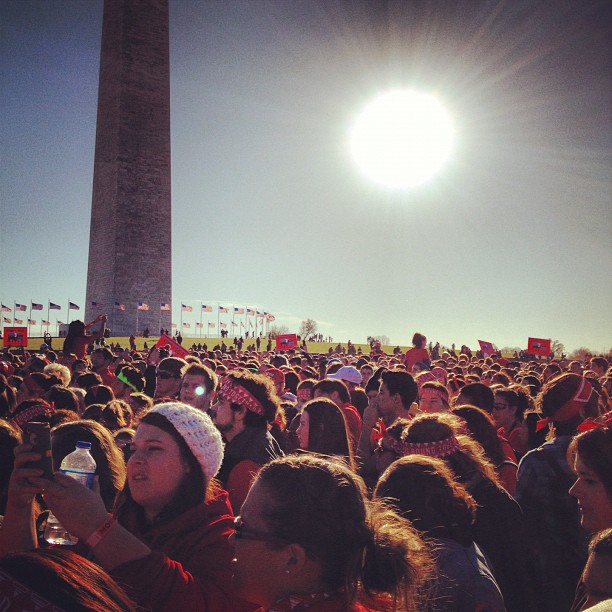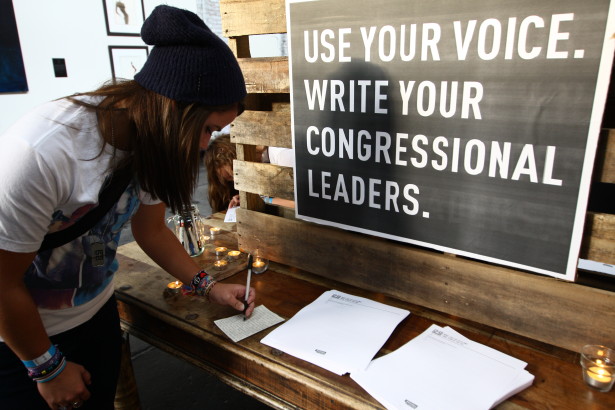
Does the U.S. government serve its ordinary citizens, or does it pander to the interests of the rich and powerful? A recent study (analysed in this Quartz article) has claimed that the decisions made by U.S. government are not based on the concerns of average people, but on the desires of the elite. It’s a big (though not new) claim. The research assessed people’s opinions of 1,779 policy issues and found that the outcome was much more likely to be seen as favourable by ‘economic elites’ (those in the 90th income percentile – that translated to an average household income of $146,000) and ‘organized groups representing business interests’ (that’s Fortune’s Power 25 lists, as well as groups from 10 key industries that reported the highest lobbying expenditures) than the masses. Let’s hear from the brains behind the claims:
“The central point… is that economic elites and organised groups representing business interests have substantial independent impacts on U.S. government policy, while mass-based interest groups and average citizens have little or no independent influence.” (Authors of the study, Princeton’s Martin Gilens and Northwestern’s Benjamin Page)
Ouch. They’re basically saying that ordinary citizens only get what they want from the U.S. government if it’s the same as what the rich and powerful want. If that’s true, then it’s safe to say that the home of democracy has lost its way. But here’s a key point that the paper doesn’t highlight: the research was based on policy between 1981 and 2002.
2002. That’s back in the days when Myspace was cutting edge, and if you said ‘social media’ (which you probably didn’t do very often), people either looked at you blankly or thought of Classmates.com. It was in the days before Facebook, Youtube, and Twitter; when Instagram was just a twinkle in Kevin Systrom and Mike Krieger’s eyes.

The world we live in has changed dramatically since 2002. You can debate whether or not social media facilitates real community, but you can’t argue with the fact that the connectivity and the possibility for rapid sharing of news, information and opinions on sites such as Twitter and Facebook has made them platforms of political influence. You can find evidence of this in small ways (look – U.S. ambassador Samantha Power has a facebook page) and more dramatic ones, including the social upheaval in the middle east that hindsight would come to call ‘The Arab Spring’. In December 2010, Tunisian fruit stand owner Mohamed Bouazizi burnt himself to death as a powerful act of protest against his repeated ill-treatment by the police and the apathy of his government. Soon the event was being broadcast across the world through social media, and protesters were taking to the streets, “a rock in one hand, a cell phone in the other,” according to Rochdi Horchani – a relative of Mohamed Bouazizi. It set a precedent for the role social media would play in uprisings across the region.
Invisible Children was started and grown in the blossoming digital age. As the people who created one of the most viral videos in history (KONY 2012 had 100 million views in 6 days), we know that real and important action can be sparked by media – in particular, social media. We’ve seen some astounding moves from the U.S. government that have come about as a result the grass-roots activism of the Invisible Children community. In 2012, The LRA Disarmament and Northern Uganda Recovery Act was signed into law as the most widely supported Africa-related piece of legislation on record in U.S. history. This bill was a catalyst for Obama’s decision in October 2011 to deploy 100 U.S. advisers to central Africa to help protect civilians and apprehend top LRA commanders. This mission has been sustained since then, and was recently tripled in size. In January 2013, the president signed the The Rewards for Justice bill into law, extending the legislation that offers rewards for information about wanted criminals to cover relevant actors in the LRA conflict. Each of these decisions weren’t taken by the U.S government because of the rich and famous, or because it benefited large corporations. They were taken because of the will of the people.
While we can see the conversion about elitism (especially in regards to the laws that the U.S. government is making) is an important one, this study’s conclusions about the impotency of American citizens to affect political decisions doesn’t quite ring true for us at Invisible Children, given the impact we’ve been able to have at a policy level. Here’s the question: are we as a movement an exception to the rule, or do we really live in a new age of political influence?
Think people should hear about this?